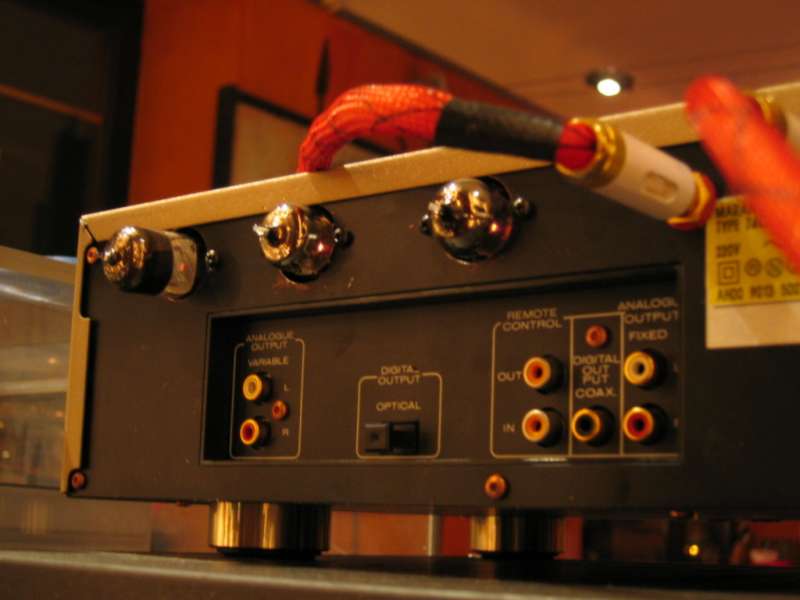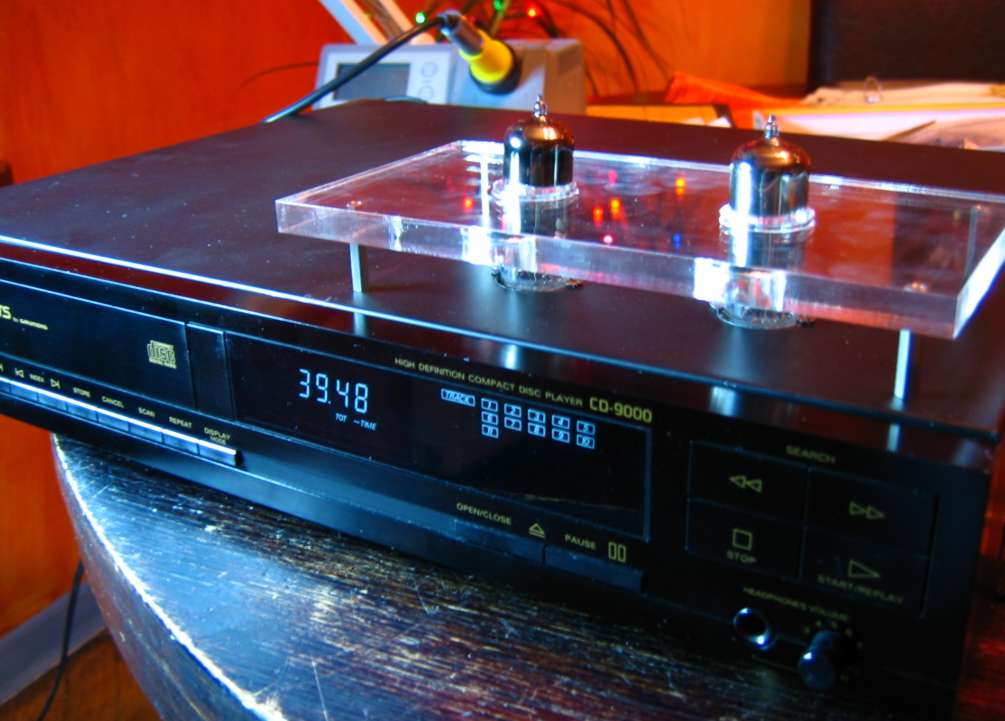The general division is between INTERNAl and EXTERNAL type of device.
While internal is more neat, external can be retained in case of CDP change so in a way it is a safer investment
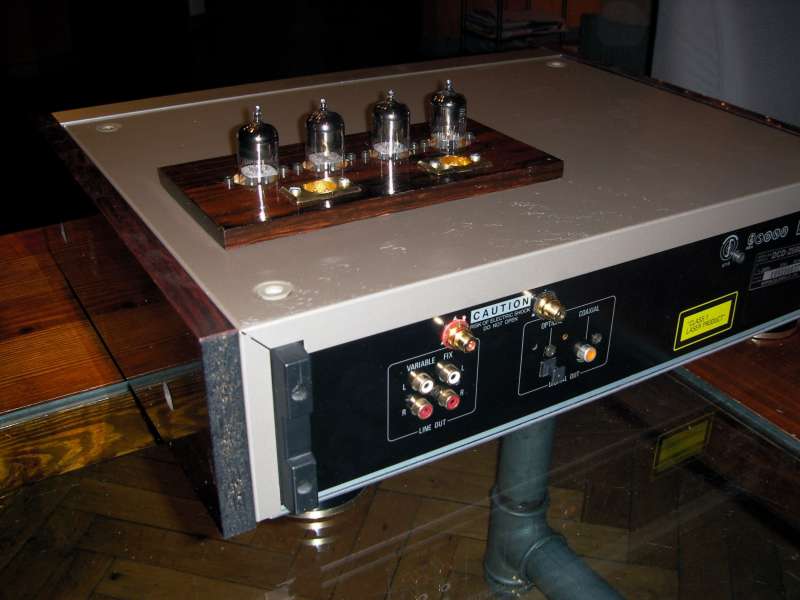
This picture shows internal visible balanced lampizator in the Denon CDP
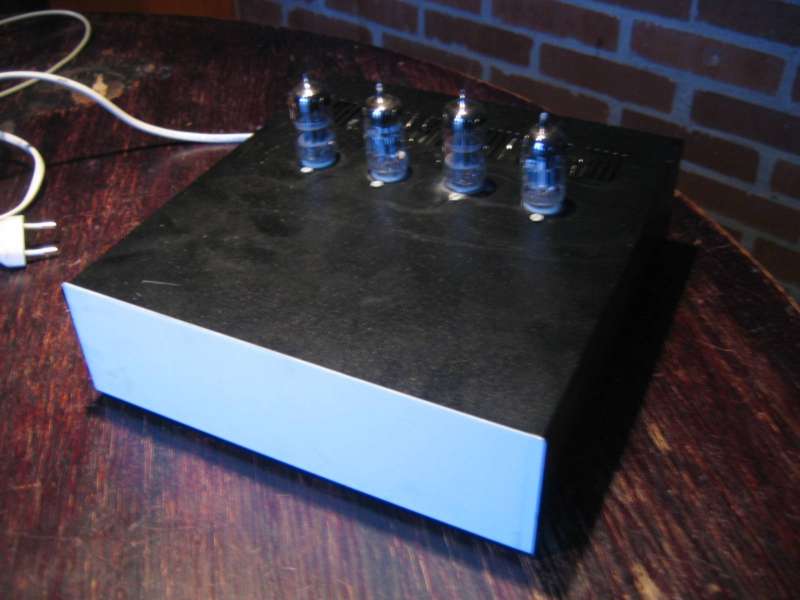
This picture shows external visible balanced lampizator.
Internal lampizators can further be divided into visible and concealed. External lampizators can of course be with tubes visible or not.
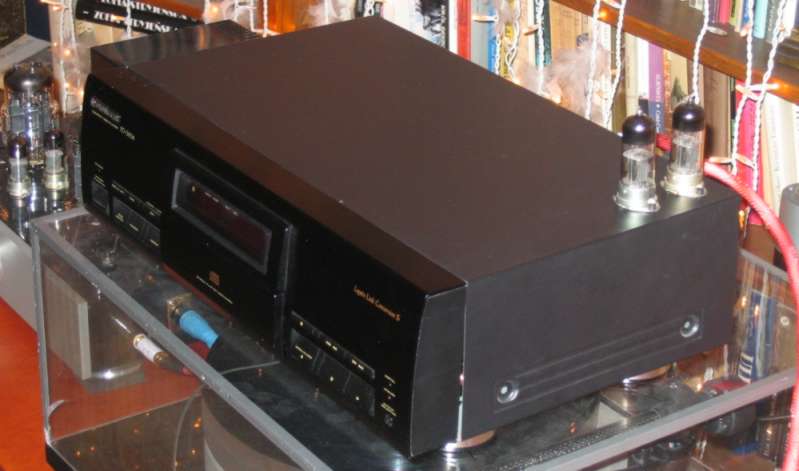
This is Pioneer 904S CDP with internal visible single ended lampizator.
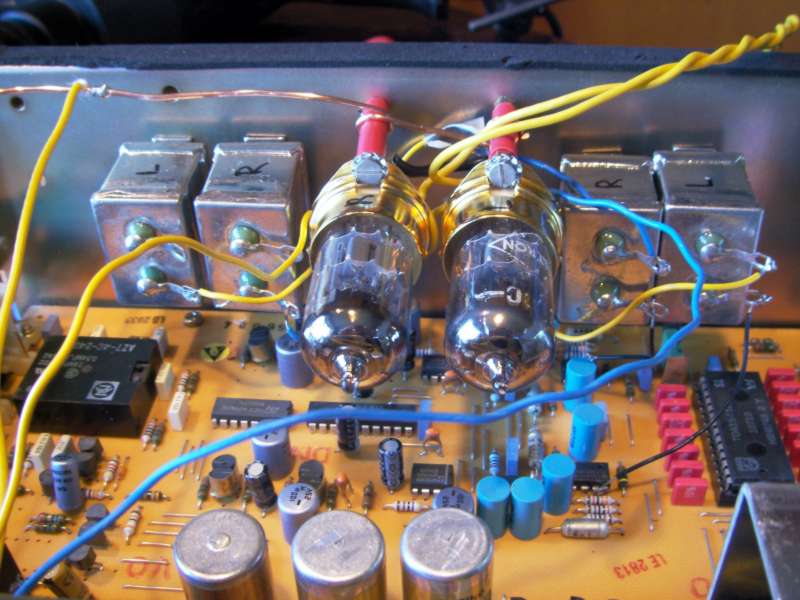
This is Revox Studer B226-S with internal concealed single ended lampizator. The cans are paper in oil capacitors.
This is external concealed lampizator - single ended. It might be also a high-end preamp if we added a potentiometer and input selector switch.
This is single ended exposed external lampizator
Electrically, they can be balanced or single ended.
Speaking of balanced, on this side of Atlantic most hifi gear is single ended, meaning that the signal is transmitted by a pair of wires representing alternating musical signal (hot) and reference ground. They are connected via so called RCA jacks, most stupid connectors in existence. These are almost as stupid as perpendicular parking bays for cars.
Balanced operation is mostly popular in USA and Far East and it is vastly superior from engineering standpoint. Sometimes it can be sonically superior as well.
Usually, balanced (XLR) gear is considered either High-End or PRO and in both cases is EXPENSIVE.
The good story is that while doing lampization in circa 2/3 -rds of cases I find the CDP can be converted from SE to balanced because many CD players have doubled internal converters hence there are four signals not two. In such case I advise to go for balanced and have both just in case.
On my system with fully balanced amplifiers the same CDP is much better sounding in balanced connection for reasons too complicated to explain here.
